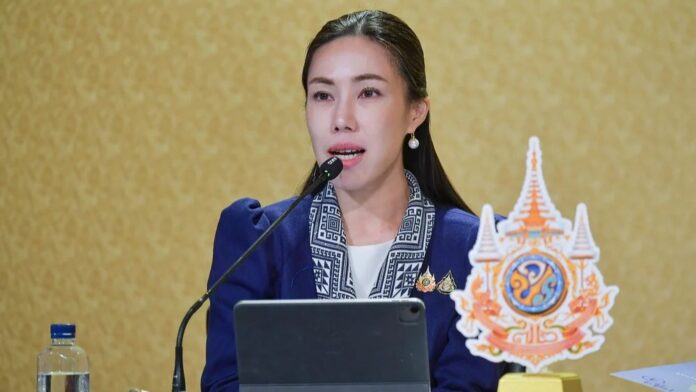A new reality is dawning for expats in Thailand.
A significant overhaul of the Thai tax system, effective January 1st, 2024, has thrown a curveball at the expat community, raising concerns and prompting a scramble for solutions.
This article delves into the intricacies of this new tax tango, offering a roadmap for expats to navigate the complexities and unlock potential strategies to secure their financial future in the Land of Smiles.
Previously a haven for foreign income, Thailand's tax code offered a sweet deal to expats:
Foreign earnings stashed abroad remained blissfully untaxed. However, the new year has ushered in a paradigm shift. Now, all foreign earned income brought into Thailand by tax residents, including expats, is subject to personal income tax. This marks a significant departure from the past, leaving many expats wondering how to navigate this uncharted territory.
Understanding the Old and the New:
To grasp the full impact of the changes, let's rewind to the pre 2024 era. Expats enjoyed the freedom of keeping their foreign income untaxed as long as it remained outside Thailand. Income earned and brought into the country within the same year was subject to tax, but passive income like pensions and investments from abroad existed in a grey area, with no clear guidelines.
Fast forward to 2024, and the landscape has transformed. The new law dictates that all foreign earned income remitted to Thailand by tax residents is subject to personal income tax. The tax rates are progressive, ranging from a comforting 0% for income up to 150,000 baht to a hefty 35% for income exceeding 5 million baht.
Pensions, while taxed in Thailand, may find some relief through double taxation agreements with the home country.
Charting a Course Through the Tax Maze:
With jaws dropped and spreadsheets open, expats are now seeking solutions to minimize the impact of this new tax reality. Fortunately, there are potential pathways to navigate this maze and shield some of that hard earned income.
Gift of the Givers:
Thai tax law offers a generous exemption on gifts between spouses. Up to 20 million baht gifted in a single year escapes the taxman's grasp. This opens a strategic avenue for couples to transfer income and potentially lower their overall tax burden. However, exceeding this threshold incurs a 5% flat tax, so careful planning is crucial.
Royalty with Relief:
For certain expats, Royal Decree No. 743 might be the golden ticket. This decree grants tax exemptions to specific long term visa holders, including wealthy retirees, global citizens, and professionals working remotely from Thailand. These fortunate individuals can potentially shield offshore income brought into the countryfrom the taxman's claws. Additionally, highly skilled professionals in targeted industries can enjoy a reduced flat tax rate of 17% on their employment income, a welcome respite from the standard progressive rates.
The Key to Relief:
But how do expats unlock these potential tax havens? Eligibility for the Decree's benefits hinges on several factors:
- Holding a Long Term Resident Visa (LTR): This is the passport to the exclusive club.
- Meeting the Thai Board of Investment's criteria: Each visa category has specific qualifications and conditions set by the Board.
- (For professionals) Working in a targeted industry: Not all industries qualify, so check the list carefully.
- Declaring employment details: Transparency is key to claiming the reduced tax rate.
- Filing tax returns on time: Don't miss the deadline or risk losing the benefits.
Diving Deeper into the LTR Visa: Your Key to Tax Relief:
While Royal Decree No. 743 offers a glimmer of hope for tax relief, unlocking its benefits hinges on securing the prized possession: a Long Term Resident Visa (LTR). But this "passport to the exclusive club" isn't a one size fits all ticket. Let's delve into the specific categories and requirements you need to meet to become an LTR holder:
Wealthy Global Citizens:
- Minimum annual personal income: US$80,000 for the past two years.
- Minimum assets: US$1 million.
- Investment requirements: At least US$500,000 in Thai government bonds, foreign direct investment, or Thai property.
Wealthy Pensioners:
- Minimum age: 50 years old.
- Minimum annual pension or passive income: US$80,000.
- Alternative option: If your income falls between US$40,000 and US$80,000, you can compensate with a minimum investment of US$250,000 in Thai government bonds, foreign direct investment, or Thai property.
Work From Thailand Professionals:
- Minimum annual personal income: US$80,000 for the past two years.
- Employment requirements: Must be employed by a foreign company with a branch office in Thailand or remotely for a foreign company based outside Thailand
Highly Skilled Professionals:
- Minimum annual personal income: US$80,000 for the past two years.
- Professional qualifications: Must possess specific skills and expertise in targeted industries (e.g., technology, innovation, research).
- Employment requirements: Must be employed under a contract with a company operating in a targeted industry.
Additional Requirements for All LTR Applicants:
- Valid passport.
- Proof of health insurance with coverage exceeding US$50,000.
- No criminal record.
- Payment of visa fees.
Case Study: Sunisa and John – Adapting to the New Tax Landscape
Sunisa (Thai) and John (British), a couple residing in Chiang Mai for the past five years, found themselves caught in the whirlwind of the new tax regime. Sunisa, a freelance graphic designer earning her income online from international clients, previously enjoyed the tax free haven for her foreign earnings. John, a retired teacher, received his UK pension, which also remained untaxed in Thailand.
With the new regulations in place, Sunisa now faces a 35% tax burden on her income exceeding 5 million baht, significantly impacting her financial security. John's pension, while now subject to tax in Thailand, might find some relief through a double taxation agreement between the UK and Thailand.
Faced with this challenge, Sunisa and John explored their options:
- Gift of the Givers: To minimize their overall tax burden, they utilized the spousal gift exemption. Sunisa transferred a portion of her income exceeding 5 million baht to John, who falls under a lower tax bracket due to his pension income. This strategic move helped them reduce their combined tax liability.
- Exploring the LTR Visa: While not currently eligible for any LTR visa category based on their income or investment levels, Sunisa and John started researching alternative options. They discovered John could potentially qualify for the "Wealthy Pensioner" category once he reaches 50 years old in a few
years. This could shield some of their offshore income from future tax burdens.
- Proactive Planning: Sunisa decided to diversify her income stream by tapping into her design skills to create and sell digital products online. This new income source, falling under the progressive tax system, would be taxed at a lower rate compared to her freelance income exceeding 5 million baht.
Sunisa and John's story exemplifies the challenges and opportunities presented by the new tax landscape. By embracing a proactive approach, exploring strategic solutions like utilizing spousal gifts and considering future LTR visa eligibility, they are adapting to the new realities and securing their financial future in Thailand.The Takeaway for Expats:
While the new tax landscape presents challenges, it's not an insurmountable obstacle. By understanding the changes, exploring strategic options like utilizing gift exemptions or qualifying for Royal Decree benefits, and seeking professional guidance, expats can navigate these complexities and optimize their tax situation in Thailand. Remember, staying informed, being proactive, and consulting with a tax advisor familiar with Thai regulations are crucial steps in securing financial peace of mind in this evolving tax environment.
Beyond the Numbers:
It's important to remember that these changes are not just about numbers on a spreadsheet. They have real world implications for expats' lives in Thailand. For some, it may mean rethinking their financial plans, adjusting investment strategies, or even considering relocation. For others, it may be an opportunity to explore new tax efficient income streams or embrace the challenges of navigating a more complex tax system.
Ultimately, the new tax regime is a reminder that life in Thailand, as in any other country, is a dynamic dance between personal freedom and fiscal responsibility.
A Cloud of Uncertainty:
It's important to acknowledge that while the law is officially in effect, there are still some lingering uncertainties surrounding its practical implementation. Monitoring every single person's foreign income movements is a complex task, and exactly how the Revenue Department will enforce these new regulations remains to be seen. Additionally, despite the initial buzz and concern, there haven't been many concrete reports of the law being actively applied to expats yet. This could suggest a period of adjustment and clarification is underway, or it could point to potential challenges in effectively implementing the law across the board.
Only time will tell how smoothly the new tax regime will be rolled out and enforced. For now, expats are advised to stay informed, maintain meticulous records of their finances, and seek professional guidance to ensure they are compliant with the latest regulations. Remember, proactive planning and careful navigation are key to navigating this evolving tax landscape.
This shift in the landscape invites expats to re-evaluate their financial plans and explore innovative strategies to navigate the complexities of this evolving situation. While concerns and uncertainties linger, it's important to remember that adapting to change is an essential part of living abroad.
This article is for informational purposes only and should not be considered professional financial or tax advice. The information provided is intended to be general in nature and may not apply to every individual's specific circumstances.
Readers are strongly encouraged to consult with a qualified financial advisor or tax professional to discuss their own unique situation and determine the best course of action for their specific financial needs. The author and publisher of this article disclaim any liability for any consequences of actions taken based on the information provided herein.
By Adam Clark, Financial Commentator, Thailand.


















 BANGKOK (NNT)
BANGKOK (NNT)


